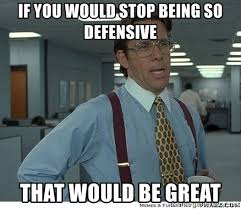
Happiness is always on the other side of being teachable. – Shannon L. Alder
In part one of this series, I shared the story of a master martial artist who asked Bruce Less to teach him everything he knew about martial arts. Bruce held up two cups, both filled with liquid. “The first cup” Bruce said, “represents all your knowledge about martial arts. The second cup represents all my knowledge about martial arts. If you want to fill your cup with my knowledge, you must first empty your cup of your knowledge.”
And this is, in part, the secret to being a teachable leader. The significant point is that you must make space for new learning and applications in an ever-changing world.
In review, in part one of this series, I shared the roadblocks that prevent us from being teachable. Here they are: you don’t place value on personal growth, you become defensive, you don’t listen, you don’t seek out wise counsel, you deflect and compare yourself to others, and you’re stuck and haven’t grown as much as you can.
Any combination of the above can be detrimental to being teachable as a leader and prevent future growth. Let’s now take a look at seven characteristics that make you a teachable leader.
You’re humble
This is one of the most important characteristics of being teachable. Arrogance will close your mind, humility will open it. Humility allows you to see yourself in realistic terms. It enables you to recognize your limitations while empowering you to rise above them.
Humility causes you to recognize that there is always something new to learn, that there is always someone to learn from, and that being teachable is a matter of possessing the right attitude. Click To TweetYou’re curious
Your curiosity, perhaps more than anything else, will cause you to be teachable. With curiosity, there is no limit to your learning. So long as you embrace curiosity the sky is the limit to your learning.
Walt Disney said, “We keep moving forward, opening new doors, and doing new things because we’re curious and curiosity keeps leading us down new paths.” What new paths are you on?
You’re proactive
There’s a big difference between the learning required of you – as in work-related continuing education- and the learning that you initiate. Part of being teachable is being proactive enough to see where you are and where you want to be and taking the initiative of the learning required to go there.
You’re open to correction
John Wooden said, “A coach is someone who can give correction without causing resentment.” And the opposite is also true – a teachable leader is one who can receive correction without becoming defensive or resentful.
Being teachable is an act of humility and when received in the spirit in which it’s given (preferably done the right way), it can have lasting benefits to your leadership. Do you receive correction and seek to learn from it or do you resent it?
You’re OK with failing
Some might be surprised by my inclusion of failing on the list of characteristics of being teachable. But I think it’s a valuable piece of the learning and teaching process. Failure is the price of learning and much of our learning comes through failing. It’s the reason why we have to be comfortable with it.
We don’t embrace failure for the sake of making excuses and staying where we are. We embrace it because we are trying to move forward and be better tomorrow than we are today. Click To Tweet Being teachable is all about embracing those difficult moments and turning them into positives.
You’re discontent with the status quo
The more you learn and are able to translate that learning into practical workable applications to life, it will create within you discontent for where you are and it will increase your desire to learn even more.
This is an upside to being teachable in that you discover it has rewards and benefits that impact your leadership today and into the future. When you combine being teachable with being discontent it will take you to new places in your leadership.
You’re growing
This is the natural by-product of being a teachable leader – you’re growing. And your personal growth and development will translate into greater influence in ways you may never have imagined without it.
If you want to grow as a leader, increase your reach and impact, and become all that you were created to be, then you and I must always be teachable.
Are you a teachable leader?
©2022 Doug Dickerson
 In teachable moments that you have – especially with mentors and those with more knowledge and experience, one sure sign of not being teachable is that you become defensive. And what happens plays out like this: you defend yourself rather than listen; you justify your actions and behaviors rather than correct them, and you put up walls. So long as you are defensive and not teachable, you forfeit the opportunity for a teachable moment and to be a better leader.
In teachable moments that you have – especially with mentors and those with more knowledge and experience, one sure sign of not being teachable is that you become defensive. And what happens plays out like this: you defend yourself rather than listen; you justify your actions and behaviors rather than correct them, and you put up walls. So long as you are defensive and not teachable, you forfeit the opportunity for a teachable moment and to be a better leader.